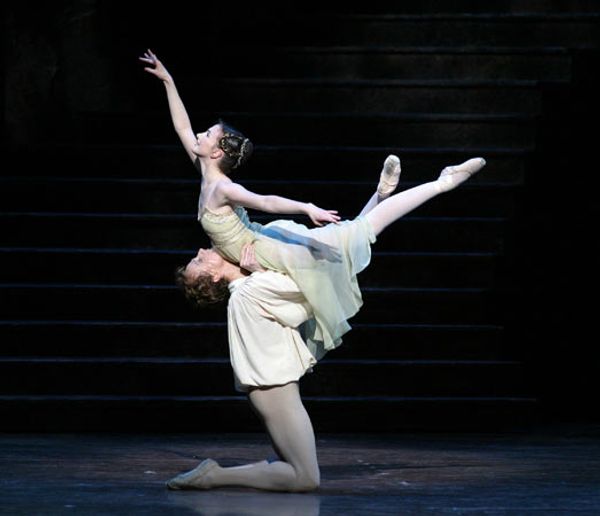Throughout elementary and middle school I was enrolled in a private and religious-affiliated academy. Naturally, there was a strict and rigid order to our curriculum.
Religion, of course, came first and foremost, followed by the basic subjects: math, social studies, science and reading comprehension. Sometimes, we would delve into other subjects such as language and computers (once per week at most).
What was evidently lacking were the arts.
I had never even had a formal, structured art class until I entered my freshman year of high school (also private, also religious). And even that merely lasted a year.
Arts and crafts time was the Ghost of Kindergarten-Past.
The arts never seemed to be considered valuable. Music, painting, dancing and simply creating things with our hands were clearly not activities that were going to lead us to academic success (according to our teachers).
They were considered leisurely activities to be done during free time, not during class hours where they would take up precious time when we could be learning PEMDAS or memorizing the types of clouds.
I am not the only one with these experiences. Many people I have met throughout my life had an education lacking in the arts. And art education constantly faces looming budget cuts in our nation's public schools.
Art and music seem to be the first subjects to be cut from school curriculum whether it be from changes in curriculum standards to budget cuts.
More than 40 percent of secondary schools were not required to have art classes as graduation coursework requirements, most notably in low-income neighborhoods.
Over one million of our country's elementary school-aged children don't have any access to music education at all.
From these statistics, it is clear that our country does not think highly of art education.
This problem was only made worse with President Trump's proposal to eliminate the National Endowment of the Arts in his FY 2018 budget plan. Although the effects of his plan are not immediate, it is telling of his administration's views against the value of art education.
Luckily, Congress recently approved a three million dollar increase in the NEA's budget from the previous year, despite the President's threat to veto the budget bill.
As for 2019, the NEA yet again faces the threat of receiving no government funding under President Trump.
All of this boils down to the education system's unwillingness to include creativity in its schools.
Creativity, unlike academics, cannot be measured by a grading system. It most likely will not get you into college on a scholarship and it probably will not earn the majority of prospective graduates a well-paying, stable job.
But creativity is an essential part of a child's growth.
Creativity literally makes our brains grow. Arts such as painting, sculpting, music, drawing and dance allow our brains, especially as children when we have incredible innovative capacities, to grow.
They allow our brains to develop faster, and therefore, able to hold more information. They improve memory.
They improve our focus and concentration, which can also extend to other more "serious" and acceptable areas of study such as math and science.
When we are small children all we want to do it learn through exploration. When we want to find out information we use our hands and mouths to examine or investigate.
We express our feelings through stick figure drawings and finger paint. We bang on pots and pans with wooden spoons and sing along to the beat of our own drum.
But why don't schools foster this immense presence of creativity?
Why are the arts largely abandoned after a certain age when creativity is deemed unfitting for academia and no longer required?
I don't know the answers to these questions but I'm angry I even have to ask them.
11 years ago, Sir Ken Robinson gave a very famous and frequently-viewed TED Talk entitled "Do Schools Kill Creativity?" In this talk, Ken boldly claims that creativity should be treated with the same regard in schools as literacy:
"... my contention is, all kids have tremendous talents. And we squander them, pretty ruthlessly. So I want to talk about education and I want to talk about creativity. My contention is that creativity now is as important in education as literacy, and we should treat it with the same status."
He goes on to comment on the hierarchy of school subjects with mathematics at the forefront followed by the humanities. Art and music are always at the very bottom of this theoretical ladder, and dance and theater are even lower still. Ken goes on to say:
"There isn’t an education system on the planet that teaches dance everyday to children the way we teach them mathematics. Why? Why not? I think this is rather important. I think math is very important, but so is dance. Children dance all the time if they’re allowed to, we all do. We all have bodies, don’t we? Did I miss a meeting? Truthfully, what happens is, as children grow up, we start to educate them progressively from the waist up. And then we focus on their heads. And slightly to one side."
I believe Ken's notions truly capture the absurdity of our education system. If schools want to nurture children toward growth and success, then they must take children's natural tendencies into account when in the classroom.
Children don't want to sit at a desk and told to be still and quiet. They don't want to neatly copy notes from a blackboard or color inside the lines.
Children want to and should be able to express themselves creatively and learn through creative exploration.
They want to touch and move and create with their mouths and hands. They want to be free of the boxes society tries so desperately to place them in when they become adults.
They want to experiment and they want to ask a million questions about it afterward.
Of course, there needs to be rules and order in a classroom in order for any learning to take place at all.
But why does it seem like education systems (and even our own President) try so hard to suppress a child's natural urge to learn through art and exploration?
For instance, science classes could take place outdoors so children can explore nature firsthand. Touching leaves, pointing out cloud shapes and examining insects all seem like wonderful ways to learn about the science that surrounds us every day.
And there is no reason why dance and music shouldn't be a part of a child's daily life, even in the classroom. Movement is a vital form of expression and fosters physical health and well-being.
If we could all let go of our societal conditioning for just a little bit we could realize that we are all born as artists just by observing children. We are all born with that innate desire to explore, make and question. Sir Ken Robinson states:
"... we are educating people out of their creative capacities. Picasso once said this — he said that all children are born artists. The problem is to remain an artist as we grow up. I believe this passionately, that we don’t grow into creativity, we grow out of it. Or rather, we get educated out if it."
It is society that tells us these desires are futile and even unnecessary. And so most of us lose our innate creativity as we grow older and drift through the education system.
I believe that we should be aware of this, and I believe it should make us angry.
If you haven't caught my message already, there are just so many reasons why art should not be absent from any school's curriculum.
Allowing children and teenagers time to practice creativity gives them a chance to truly be themselves and gives them a chance to discover talents they might not have known they had.
It gives them a sense of responsibility and motivates them to want to create more. It fosters concentration, collaboration and confidence.
These are all traits that are valued and praised in our society yet we withhold the very thing that could inspire these traits within a child.
And if that doesn't make you angry, then I don't know what would.



















